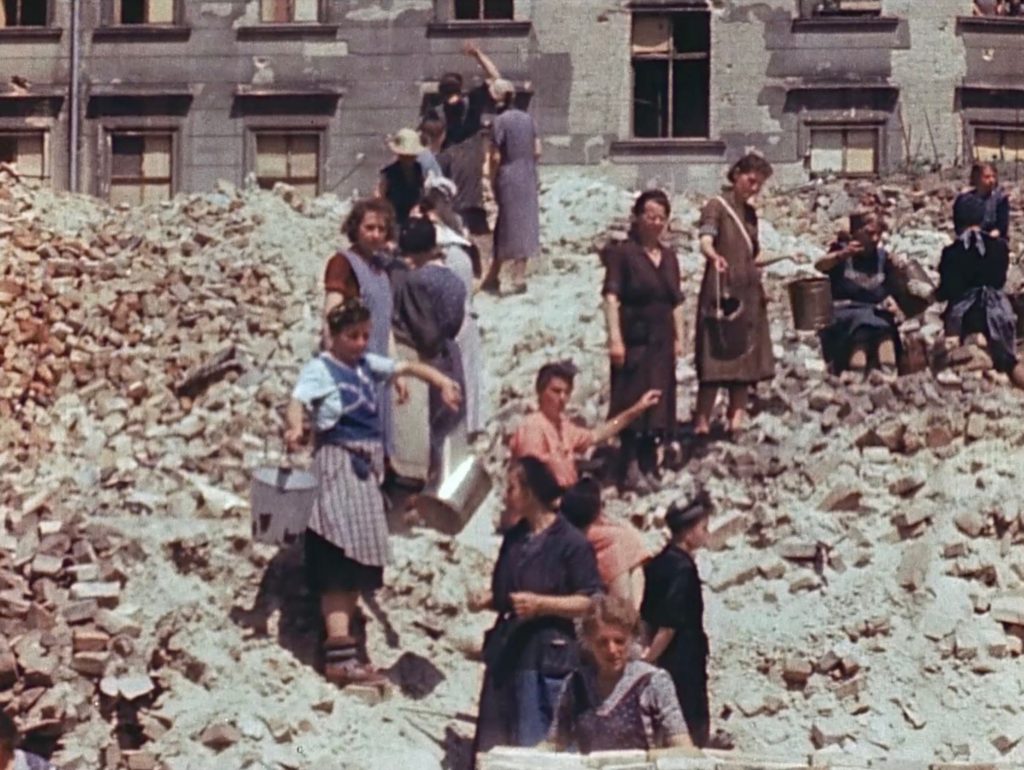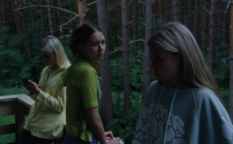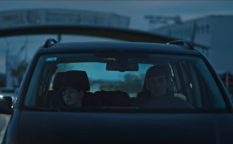Cannes review: The Natural History of Destruction (2022)

A funny and irreverent image emerged from a conversation in Cannes, of Radu Jude and Sergei Loznitsa in an archive fighting over a piece of old film, yelling to one another: “It’s mine!” Jokes aside, it looks like these two filmmakers have mastered the art of remixing old archive footage into new collages, mostly shedding light on some despicable episodes from the recent history of Europe. While Jude has mostly been concentrating on his home country of Romania in his archive docs, Loznitsa has been alternating between Russia and Ukraine, exploring the legacy (or rather, burden) of Soviet Union, with A Night at the Opera (2020) about Paris, the odd one out.
Loznitsa prefers to omit text in his archive films. Information is given via the odd intertitle and, also, SOUND. Since his very first archive film Blockade (2006), Loznitsa has been accompanied by the faithful and utterly magnificent sound designer Vladimir Golovnitski, who has help to reconstruct all his archive docs, breathing new life in film stock that often has no original sound. Together, they have created a formidable body of work, doing something very commendable: reminding us of recent history in the times when it seems that everyone is trying to rewrite it to their own benefit.
As previously with Austerlitz (2016), Loznitsa takes cue from the German writer W. G. Sebald, whose book “On the Natural History of Destruction” (1999) deals with the German processing of World War II, specifically the allied carpet bombing of German cities in the latter part of the war that have been erased from German and European collective memory.
The film is roughly divided in three parts. First, we see German citizens in nice and peaceful Nazi Germany, going about their everyday life. Then bombing starts and we see a lot of footage of planes taking off, flying about, unleashing the bombs and going down in air battles, or returning to home base. Finally, we see the devastation on the ground: cities reduced to ruins. Silent footage, enlivened by Golovnitsky’s ambiance, is punctuated with a few speeches, mostly given by the Brits: Winston Churchill, Field Marshal Bernard Law Montgomery, and Air Marshal Arthur T. Harris, a.k.a. “Bomber Harris” – the man responsible for nighttime “area bombing” of major German cities. The Brits come across as quite vengeful here but let us remind that they had just survived London bombing in the Blitz of 1940 and 1941. We also hear Hitler and see Göring, we see British air forces and the Americans (probably U.S. Eighth Air Force), German Messerschmidt and Junkers fighter and bomber planes. As Soviet Union didn’t take part of the allied air raids, there is not a single shot of anything related to the Soviets in the film, that might feel a bit surprising at first. They had their day a bit later, during the German offensive’s infamous rape wave.
The Natural History of Destruction follows the tried and tested Loznitsa pattern but the result is more ambiguous than average. As it sometimes is with Loznitsa’s archive docs, it requires some effort to go along with the rhythm and stay in it. The material itself is interesting to look at but the resulting whole is a bit disenganging. Sebald’s central idea is not quite represented, the link between the two seems fragile, more of an afterthought or intellectual construct that is not entirely supported by the archive material.
According to Loznitsa, his The Natural History of Destruction is echoing the question posed in the book: “Is the sacrifice of civilians justified in the war?”. Loznitsa, who, since the beginning of Ukraine war, has been caught in a whole series of scandalous situations (leaving European Film Academy, getting expelled from the Ukrainian Film Academy, making dubious statements in defence of Russian culture and intelligentsia), couldn’t have picked a worse time to ask that question. Due to the Ukrainian-Russian war, “saving the civilians” is the main argument of the Russian lobbyists to pressure Ukraine into accepting temporary new borders and putting an end to the war on Russian terms. As if Ukraine alone is responsible, should spare their civilians and not sacrifice their own people in the war. So, even if the initial idea of the film was neutral, the current socio-political context creates an uneasy parallel with Ukraine. One can only hope it was not intentional.
Country: Germany, Lithuania, Netherlands
Length: 112′
Year: 2022
Directed by: Sergei Loznitsa
Based on the book by Winfried Georg Sebald
Editor: Danielius Kokanauskis
Music: Christiaan Verbeek
Sound: Vladimir Golovnitski
















